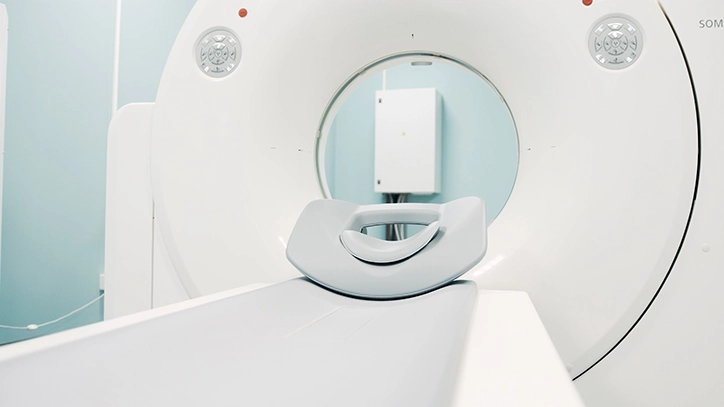During a nuclear medicine study, a small amount of radioactive material is introduced into your body, typically through an injection or ingestion. This material, known as a radiotracer, is specially designed to travel to specific organs or tissue. Once inside your body, the radiotracer emits gamma rays, which are detected by a special camera.
You’ll lie down on a table, and the camera will take images of your body as the radiotracer moves throughout. These images provide valuable insight about the functioning of your organs and tissues. The study is painless, and the radiation exposure is minimal and safe. One of our technologists will be with you every step of the way to guide you through the process.
Nuclear medicine studies are considered safe. The amount of radiation used in these studies is very small and generally, not harmful, with allergic reactions occurring on rare occasions. After your study, any remaining radiation is naturally flushed from the body.
It is important to inform your referring physician and our staff if you are pregnant or breastfeeding, as some nuclear medicine studies may not be suitable for you.
The preparation for a nuclear medicine study varies depending on the specific area of the body being examined. Your referring physician and our staff will provide detailed instructions tailored to your needs.
In general, you may need to avoid eating or drinking for a certain period of time before your appointment, and may be asked to stop taking certain medications temporarily.
Once your study is completed, one of our board-certified, subspecialized radiologists will analyze the results and develop a detailed report for your referring physician. We will make sure your physician receives your results in time for your follow up visit with them.








